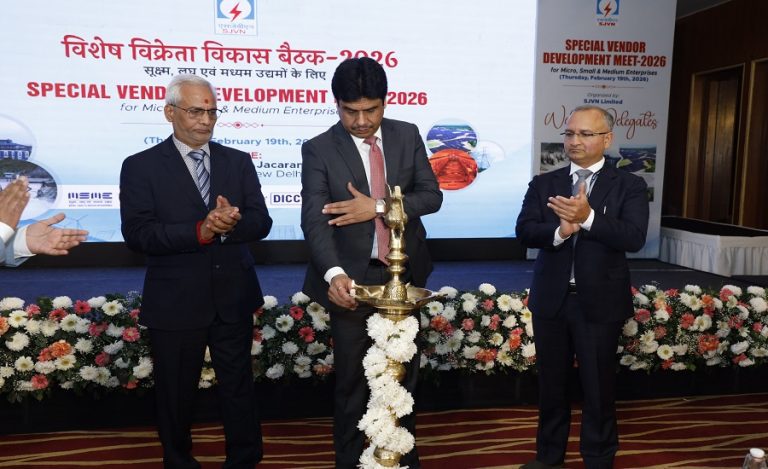Bhopal: As the world marks International Tiger Day, Madhya Pradesh takes center stage with an achievement that makes not just the state, but the entire country proud. With 785 tigers, Madhya Pradesh continues to hold the title of India’s “Tiger State”, contributing significantly to the 3,682 tigers recorded in India’s 2022 census.
This remarkable success is the result of consistent habitat management, strong policy support, and innovative conservation efforts led by Chief Minister Dr. Mohan Yadav, who has declared tiger conservation a state priority.
Expanding Forests, Growing Populations
Thanks to active relocation of villages from core forest zones in reserves such as Kanha, Pench, Kuno Palpur, and Satpura, tiger habitats have expanded, reducing human-wildlife conflict and increasing prey availability. Local grassland development, under the guidance of botanical experts, has ensured year-round fodder for herbivores like Chital, which directly sustains the tiger population.
In turn, tigers now thrive in interconnected corridors between North and South India, reinforcing Madhya Pradesh’s pivotal role in India’s ecological network.
Best in Class: National Park and Reserve Management
Madhya Pradesh has not only achieved numerical supremacy in tiger count, but also excellence in wildlife management.
- Satpura Tiger Reserve is now in the UNESCO tentative World Heritage Site list.
- Pench Tiger Reserve was ranked #1 in India in the Tiger Reserve Management Effectiveness Assessment report.
Bandhavgarh, Kanha, Sanjay, and Satpura reserves have been lauded for their strategic conservation practices.
Rising Global Tourism
Madhya Pradesh’s tiger reserves are drawing increased footfall from both domestic and international tourists. In 2024–25 alone:
- 32,528 foreign tourists visited MP’s tiger zones.
- 23,059 to Kanha, 15,201 to Panna, 13,127 to Pench, and 10,038 to Satpura.
In five years, total tourist footfall touched 8.24 lakh, with a revenue generation of over ₹61 crore.
Kanha: India’s Best Tiger Habitat
As per the Wildlife Institute of India, Kanha Tiger Reserve is the most ideal tiger habitat in the country. Spread across 2,074 sq. km in Mandla district, its mix of grasslands, dense forests, rivers, and abundant prey species like Sambhar, Gaur, and Wild Boar offers perfect conditions for tiger proliferation. The M-STrIPES mobile app and regular staff training further enhance wildlife monitoring.
Read Also: MP CM Yadav to Open Regional Tourism Conclave in Rewa, Spotlight on Vindhya’s Tourism Potential
Innovations in Conservation
Under Dr. Yadav’s leadership, Madhya Pradesh has launched pioneering efforts such as:
- Gene Testing of Tigers for individual identification
- Drone Squads in Panna Tiger Reserve for surveillance, rescue, and fire prevention
- Rescue Centers in Ujjain and Jabalpur, modeled after Gujarat’s Bantara Zoo
- Relocation of over 200 villages to expand and protect tiger habitats
- Tackling Wildlife Crime with Technology
- Madhya Pradesh’s Wildlife Crime Control Unit has intensified operations:
- Joint forest-police patrols to catch poachers
- Village Forest Committees involved in monitoring
- Use of camera traps and drones for 24×7 surveillance
- Creation of a wildlife criminal database for preventive tracking
- Partnerships with global wildlife bodies to strengthen conservation outcomes
These efforts have significantly reduced poaching and ensured safer environments for wild animals.
International Tiger Day: Why It Matters
International Tiger Day was first observed on July 29, 2010, following a landmark St. Petersburg Tiger Summit, where 13 tiger-range countries pledged to double their tiger populations by 2022. Madhya Pradesh has not only upheld that commitment but has emerged as a global benchmark for sustainable tiger conservation.
CM’s Message
Chief Minister Dr. Mohan Yadav congratulated the forest staff, conservation experts, and local communities for making tiger conservation a resounding success. “Madhya Pradesh’s roar is the roar of India. Let us continue this legacy of harmony with nature,” he said, calling for similar progress across all reserves.




























